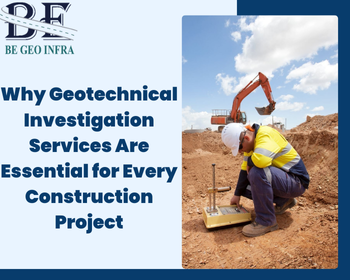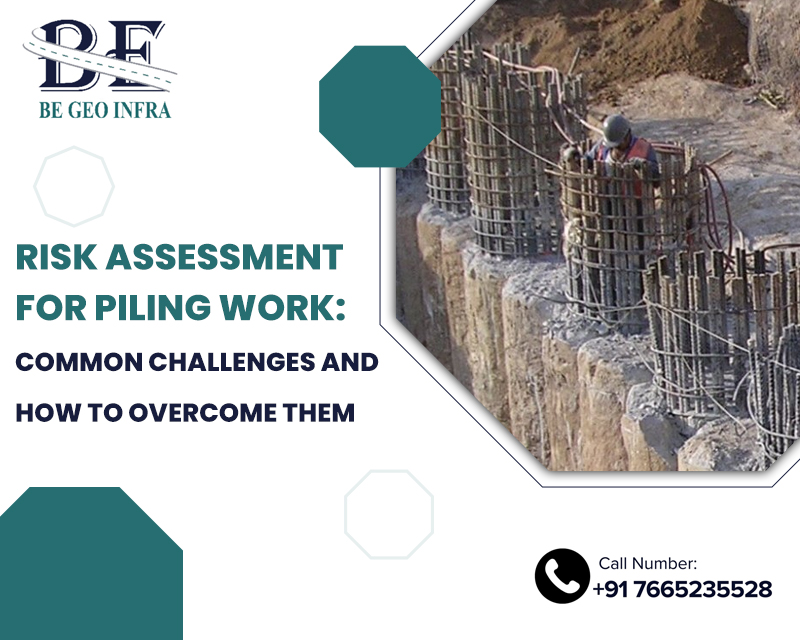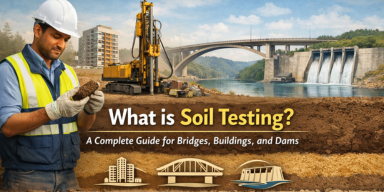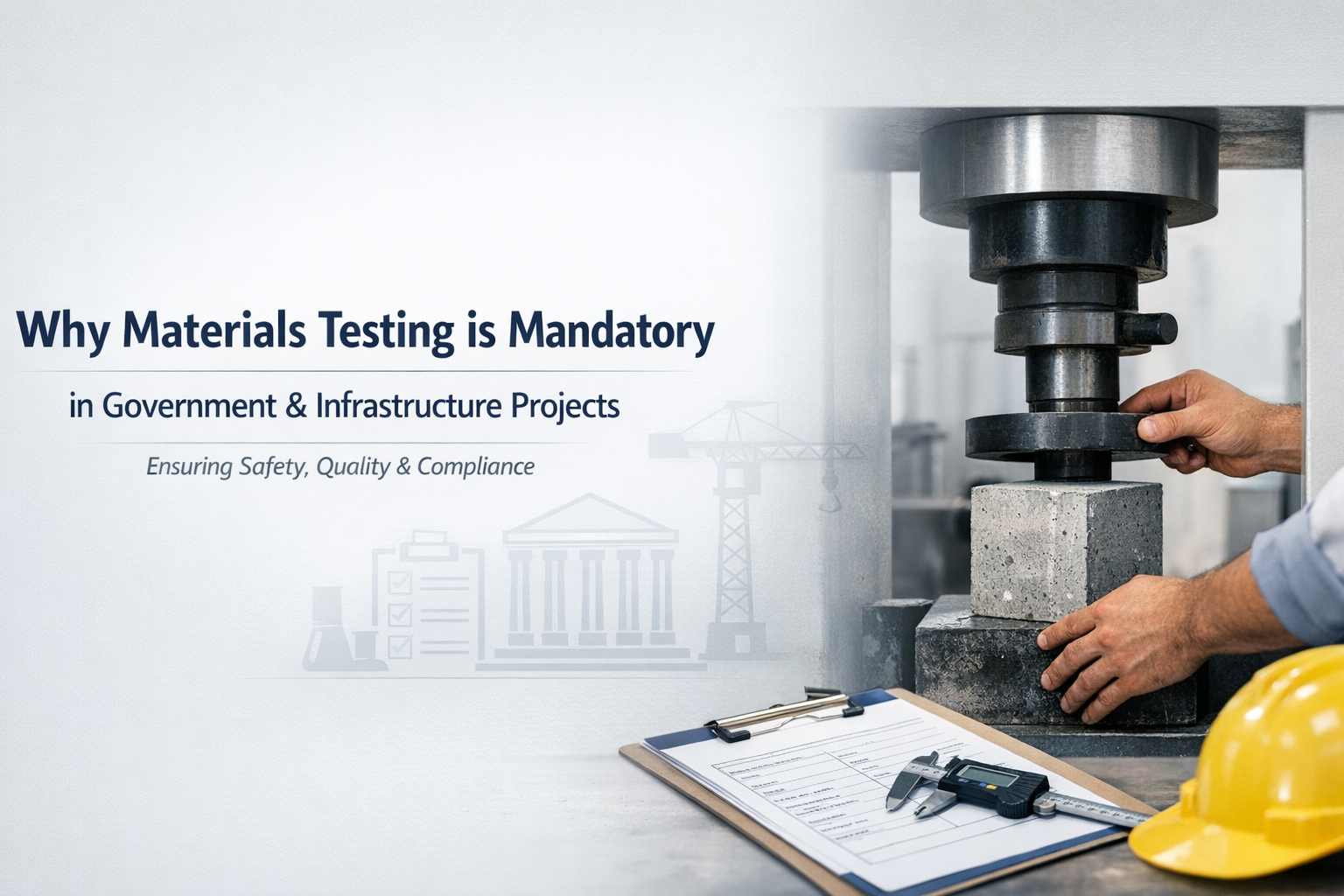January 24, 2025
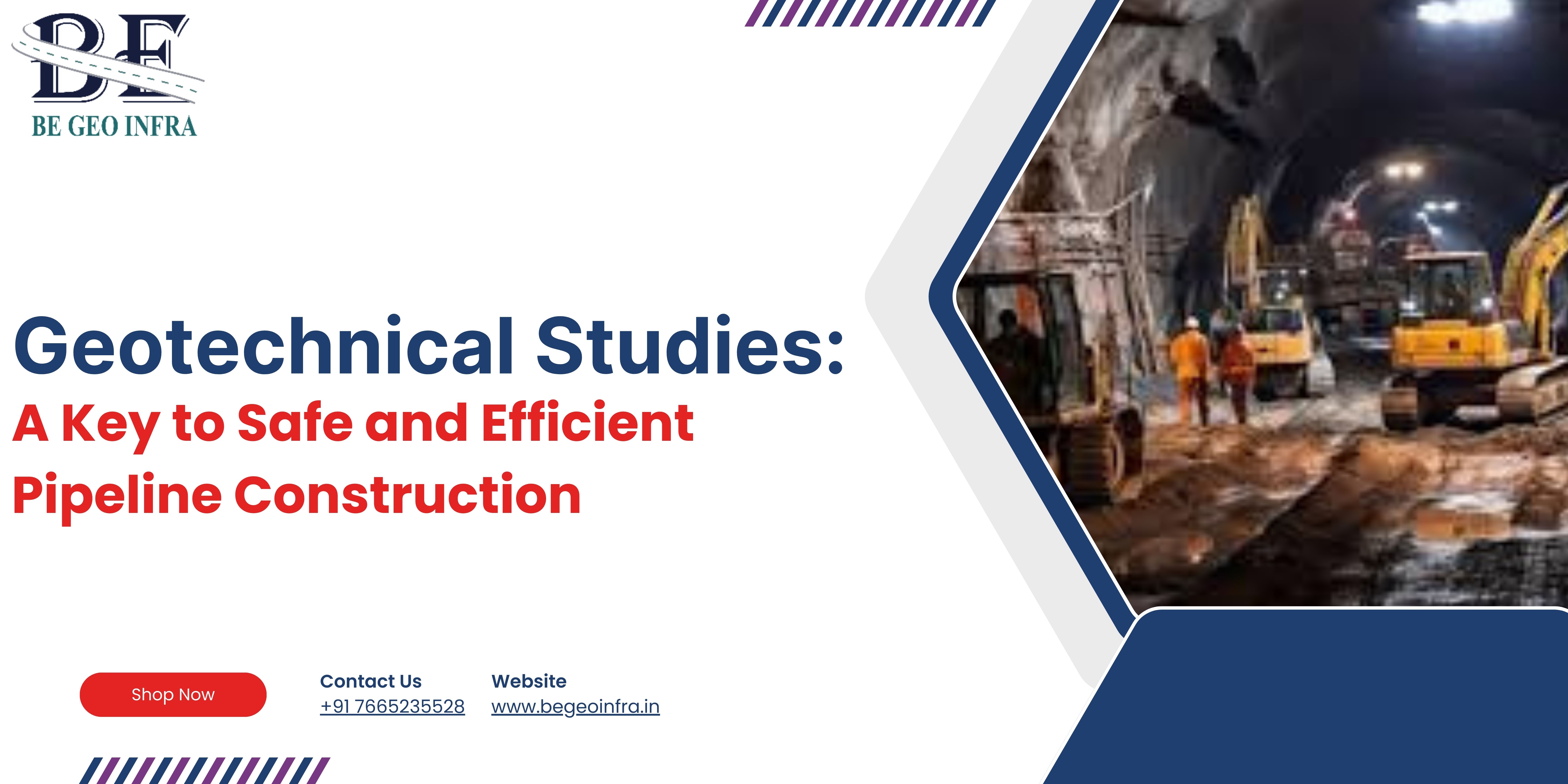
Geotechnical Studies: A Key to Safe and Efficient Pipeline Construction
Pipeline construction is a crucial part of modern infrastructure, ensuring the efficient transport of water, gas, and other essential resources. However, building a pipeline is not as simple as laying pipes underground. A thorough understanding of soil conditions and geological factors is necessary to ensure safety, stability, and longevity. This is where geotechnical studies play a vital role.
Geotechnical studies involve analyzing soil and rock properties to determine the best way to construct pipelines. These studies help in site investigation, soil analysis, and geotechnical investigation, all of which contribute to a well-planned and risk-free pipeline construction process. In this blog, we will explore why geotechnical studies are essential and how they contribute to safe and efficient pipeline construction.
What Are Geotechnical Studies?
Geotechnical studies involve the evaluation of soil and rock properties, groundwater conditions, and other geological factors that impact construction projects. These studies help engineers understand how the ground will react to pipeline installation, ensuring stability and preventing future failures.
Some key aspects of geotechnical studies include:
-
Soil Analysis: Examining soil composition, strength, and behavior.
-
Site Investigation: Assessing the site for potential risks such as landslides, sinkholes, or weak soil layers.
-
Geotechnical Investigation: Conducting field and laboratory tests to evaluate soil and rock conditions.
Importance of Geotechnical Studies in Pipeline Construction
Geotechnical studies are essential for pipeline construction for several reasons:
1. Ensuring Structural Stability
Pipelines must be laid on a solid foundation to prevent issues like settling, cracking, or shifting. Geotechnical investigations help engineers identify the best routes and construction techniques based on soil conditions.
2. Identifying Potential Hazards
A detailed site investigation can reveal risks such as landslides, soil erosion, or groundwater problems. Addressing these hazards in the planning stage helps prevent costly repairs and accidents in the future.
3. Optimizing Construction Techniques
Different soil types require different construction methods. For example, pipelines laid on clay-rich soil may need special reinforcement, while those in sandy areas may require deeper trenches. Soil analysis guides engineers in selecting the most effective construction techniques.
4. Preventing Environmental Damage
Geotechnical studies help ensure that pipeline construction does not negatively impact the environment. By understanding the soil composition and groundwater flow, engineers can take measures to prevent soil erosion and contamination.
5. Reducing Costs and Delays
Unexpected ground conditions can lead to project delays and increased costs. By conducting thorough geotechnical investigations beforehand, engineers can anticipate challenges and plan accordingly, saving both time and money.
Steps in Geotechnical Investigation for Pipeline Construction
A geotechnical investigation typically involves several steps:
1. Preliminary Study
Before starting construction, engineers review geological maps, previous reports, and satellite images to get an initial understanding of the terrain.
2. Field Investigations
Field tests such as borehole drilling, soil sampling, and geophysical surveys are conducted to collect real-time data about the soil and rock conditions.
3. Laboratory Testing
Soil and rock samples are analyzed in laboratories to determine their composition, strength, permeability, and other properties.
4. Data Analysis and Reporting
The collected data is analyzed to create a detailed geotechnical report, which includes recommendations for pipeline construction, potential risks, and suggested solutions.
Best Practices for Geotechnical Studies in Pipeline Construction
To ensure effective geotechnical studies, engineers and project managers should follow these best practices:
-
Conduct early-stage site investigations to identify potential challenges.
-
Use advanced geophysical methods like ground-penetrating radar for accurate soil analysis.
-
Regularly update geotechnical reports based on field observations.
-
Collaborate with geotechnical experts to interpret results and apply appropriate construction techniques.
-
Monitor soil conditions during and after construction to prevent unexpected failures.
Conclusion
Geotechnical studies are an essential part of pipeline construction, ensuring safety, stability, and efficiency. By conducting thorough soil analysis, site investigation, and geotechnical investigation, engineers can mitigate risks, reduce costs, and build durable pipelines that stand the test of time.
For companies like Begeo Infra, investing in geotechnical studies is not just a precautionary measure—it is a necessity for ensuring successful and long-lasting infrastructure projects. Whether you are planning a new pipeline or upgrading an existing one, geotechnical studies will help you achieve the best results.

Need help? Call us Today at+91 7665235528
for inquiries and support. We’re here to assist you.


